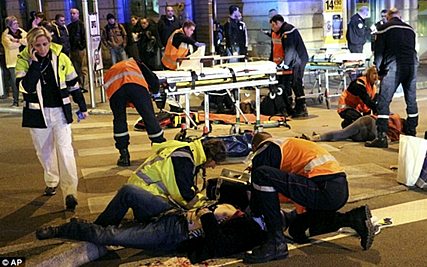
When someone gets stabbed, or shot, or blown up by a suicide bomber, or deliberately run over with a vehicle, would you describe him as “injured”? Or is he “wounded”?
For many years, guidelines provided by the Gates of Vienna style book have advised that anyone who is hurt but not killed by deliberate human actions should be described as “wounded”. I follow that rule when editing essays and translations: I change “injured” to “wounded” where appropriate.
Even if a translation is exactly, literally correct, I’m going to change “injured” to “wounded”, because I think the use of the former word is part of the media propaganda war intended to hide the full horror of immigrant atrocities. That type of obfuscation is being attempted in all languages.
Injuries happen during car wrecks, train disasters, hurricanes, and other acts of God, but anything human-inflicted is a wound.
The difference is subtle, but the nuance is picked up subliminally by the reader, who becomes conditioned to think that that someone who is “injured” by a culture-enricher with a machete is basically the same as the victim of a natural disaster.
I’ve noticed this phenomenon for many years in English-language news reports. People who receive horrible wounds at the hands of jihad terrorists, muggers, and “teenagers” playing the knockout game are described as “injured”.
If you hear that often enough, you become desensitized to the difference between the two words.
I won’t be a party to the propaganda: those victims are WOUNDED.

Thank you.
Excellent point!
the “they” always mess with the words, dont they?!!
It was like some calling 9/11 a “tragedy.” Uh, no. It was an act of war.